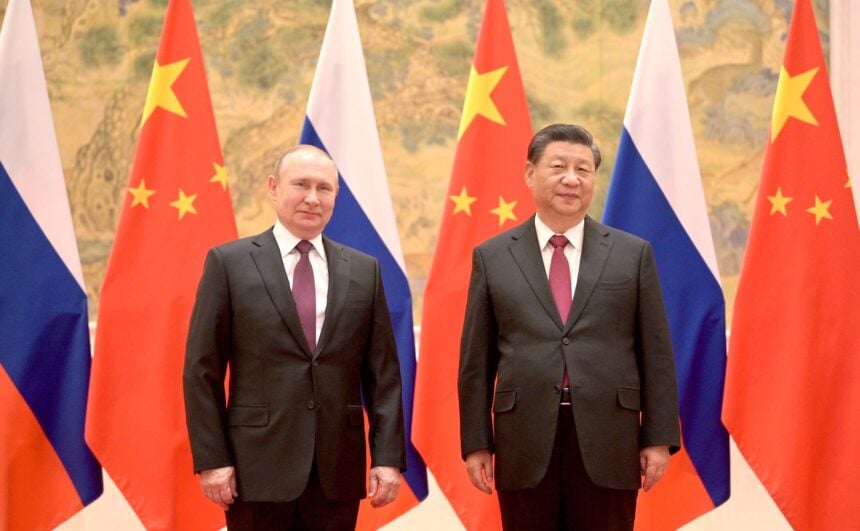There are many events in the conduct of international relations prematurely dubbed “historic,” and their importance turns out to be ephemeral. This has been the case with various international forums on disarmament (starting with The Hague Peace Conference of 1899), or on trade, development, human rights, climate, and other issues du jour. Only a few Cold War history buffs remember dozens of “historic” meetings between American and Soviet top officials from Yalta and Potsdam in 1945 until the collapse of the USSR, in 1991. Even the “historic Korean summit” of 2018 is forgotten, after only five years.
There are events, on the other hand, which are rightly recognized as very important as soon as they happen. The 1494 Treaty of Tordesillas, when Spain and Portugal agreed to divide up the New World rather than fight over it, was one of those events. The Diplomatic Revolution of 1756, when Austria’s Habsburgs turned from being an ally of Britain to being an ally of their old enemy, France, was another. And the 1939 German-Soviet Nonaggression Pact was an immediate world sensation, for very good geostrategic reasons.
Cue 2023: “This is an historic moment,” said British politician Dominic Raab after the International Criminal Court (ICC) issued on March 17 an arrest warrant for Russia’s President Vladimir Putin. Predictably, the regime in Ukraine also hailed the decision as “historic.” The claim was repeated ad nauseam in the Western media machine.
Putin is accused of moving hundreds of children from Ukraine to Russia. The Russians say the minors in question were mostly orphans in the war zone whose safety was jeopardized. Moving them out of harm’s way, however, is apparently a war crime. Oddly, the ICC has not accused any Ukrainians of war crimes; even the non-stop shelling of civilian targets—children included—in the Donbas since 2014 has not received such a designation.
The assertion is absurd. There is nothing historic about the ICC, a quasi-legal monstrosity created and controlled by the “collective West,” acting as a propaganda tool of its masters. It audaciously claims jurisdiction over every human being in the world, including citizens of those countries that have not ratified the treaty, such as Russia, China, and the United States, much to the annoyance of the globalist wing of the Washington Duopoly.
The role of the ICC as a pliant tool of Western policy was on full display on June 27, 2011, when it issued an arrest warrant for the late Libyan leader Muammar Gaddafi. This happened two months after the beginning of the U.S.-led NATO intervention against Libya. The move was a carbon copy of The Hague Tribunal for the former Yugoslavia (ICTY), indicting Slobodan Milošević for war crimes at the height of NATO’s bombing campaign against Serbia, in 1999.
In both cases a transnational court of questionable legitimacy, controlled and financed by the intervening powers, acted on cue to provide retroactive justification for openly interventionist Western policies. In reality, all ICC indictments thus far have been on par with the Nazi government decreeing the Staatsnotwehrgesetz (The Law on State Self-Defense of July 2, 1934), which retroactively “legalized” the Night of the Long Knives two days after the bloodbath.
When the ICC started operating in 2002, Congress passed, on a bipartisan basis, the American Servicemembers Protection Act, which strictly limits the United States’ ability to cooperate with the court. The system of transnational criminal justice—of which the ICC is the flagship—is the antithesis of key U.S. constitutional principles of checks and balances, of sovereignty itself. The ICC is outside any “constitutional” design that delineates how laws are made, adjudicated, enforced, or made accountable. Yet the Biden administration has given enthusiastic support to the ICC indictment against Putin.
This indictment makes it clear that the ICC is ruled by the will of its political masters. The arrest warrant has the sole purpose of making negotiations to end the war impossible: no agreement is to be contemplated with the “indicted war criminal.”
For a real diplomatic revolution of our time, we need to look further east. Iran and Saudi Arabia agreed to reestablish diplomatic relations, with China acting as the intermediary. China has emerged as “a superpower with predominantly reconciliatory and peace-centric diplomacy,” wrote Imran Khalid in one of Pakistan’s largest English-large newspapers, The News International.
The agreement was brought about by China’s decisive mediation and constitutes clear triumph for Beijing. It demonstrates that the hegemonistic “rules-based order” has ended, and the new one is being born. This was additionally confirmed by Xi Jinping’s spectacularly choreographed visit to Moscow just three days after the ICC indictment was made public. If the indictment was meant to further isolate Putin, it has failed.
Having displaced America as the preeminent power in the volatile Middle East region, China is also fortifying its position as the principal and indispensable ally of Russia and—more importantly—the party likely to dominate that relationship in the future. The Middle Kingdom is better poised than at any time in its 3000-year history to influence and even control global events and processes important to its security and necessary to the implementation of its grand strategy.
This is historic, just as ICC indictments are ephemeral.

Leave a Reply